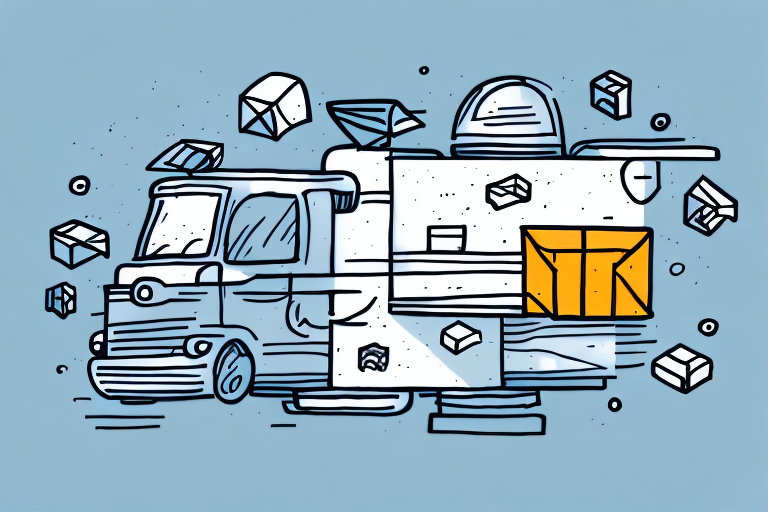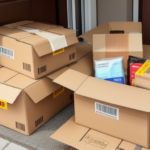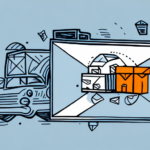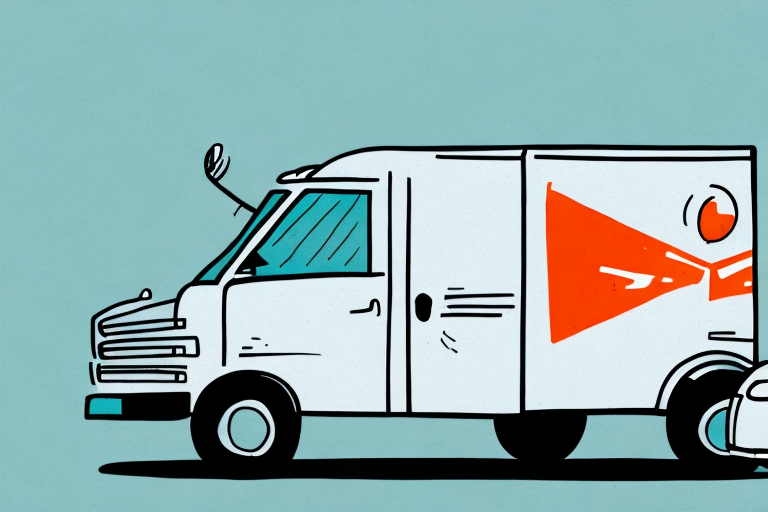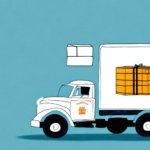What Is Courier? A Comprehensive Guide to Understanding Courier Services
Courier services have become an integral part of business transportation needs in today's global economy. A courier is a company or person that provides a door-to-door delivery service for a wide range of items, including important documents, parcels, and packages. Courier services use a variety of vehicles such as vans, trucks, motorcycles, and bicycles to transport items. In this comprehensive guide, we will explore the history of courier services, the types of courier services available, and how courier services work. We will also examine the benefits of using courier services for your business and what factors to consider when choosing the right courier service.
The History of Courier Services: From Ancient Times to the Modern Day
Courier services have been around for centuries, with records dating back to ancient civilizations such as the Egyptians, Greeks, and Romans who used messenger systems to deliver important documents. In the 19th century, the Pony Express provided a secure mail delivery service across the western United States. Today, courier services are an essential part of the global transportation industry and have expanded to meet the ever-growing demand for fast, secure, and reliable delivery services.
With the advent of technology, courier services have evolved to include online tracking systems, real-time updates, and electronic signatures. This has made it easier for customers to track their packages and ensure that they are delivered on time. Additionally, courier services have expanded their offerings to include specialized services such as medical courier services, which transport medical supplies and equipment, and same-day delivery services, which provide urgent delivery options for time-sensitive packages.
Despite the growth of digital communication, courier services remain an important part of the business world. They provide a physical connection between businesses and their customers, allowing for the delivery of physical goods and documents. As e-commerce continues to grow, courier services will continue to play a vital role in the global economy, providing fast and reliable delivery services to businesses and consumers alike.
Types of Courier Services: Same-Day, Next-Day, International, and More
Same-Day Delivery
Same-day delivery services have become increasingly popular in recent years as they provide fast and reliable delivery for urgent items. According to a Statista report, same-day delivery is expected to grow significantly, driven by consumer demand for quicker delivery options.
Next-Day Delivery
Next-day delivery ensures that packages arrive within 24 hours, making it a preferred option for businesses that require timely deliveries without the premium cost of same-day services.
International Delivery
International courier services allow for the transportation of goods and packages across borders with strict adherence to customs laws and regulations. Companies like DHL and FedEx offer comprehensive international delivery solutions.
Scheduled Deliveries
Scheduled deliveries provide customers with the flexibility to choose specific delivery times, ensuring that packages arrive when someone is available to receive them.
On-Demand Delivery
On-demand delivery services allow customers to request a delivery at any time and have it delivered within a few hours. This is particularly useful for businesses that need to deliver urgent documents or packages to clients or partners.
Additional Delivery Options
- Door-to-Door Delivery: The courier picks up the package from the sender's location and delivers it directly to the recipient's address.
- Pick-Up and Drop-Off: Ideal for customers who prefer to drop off their packages at a designated location.
- Express Delivery: Perfect for urgent deliveries that need to be delivered within a few hours or on the same day.
How Courier Services Work: A Step-by-Step Guide to the Delivery Process
- Package Preparation: The sender prepares the item for shipment by packing it securely and labeling it with the necessary information, including the recipient's address and contact details.
- Pickup: The courier service picks up the package and transports it to their distribution center.
- Sorting and Processing: At the distribution center, the package is sorted and processed for delivery. This includes scanning, sorting based on destination, and prioritizing based on delivery times.
- Delivery: The courier delivers the package to the recipient, who typically signs for the package upon delivery.
- Tracking and Updates: Many courier companies offer real-time package tracking and electronic signature capture to ensure secure and efficient delivery.
With advancements in technology, the delivery process has become more streamlined and transparent. According to a Transport Dive report, real-time tracking and automation are key trends shaping the future of courier services.
Benefits of Using Courier Services for Your Business Needs
- Faster Delivery Times: Expedite your business operations with quick and reliable delivery options.
- Improved Reliability: Professional couriers ensure that packages are delivered safely and on time.
- Greater Flexibility: A variety of delivery options allow businesses to tailor services to their specific needs.
- Cost-Effective: Reduce overhead costs by outsourcing delivery needs instead of maintaining an in-house delivery system.
- Advanced Features: Services like real-time tracking, electronic signatures, and reliable customer support enhance the delivery experience.
Many businesses find that outsourcing their delivery needs to a reputable courier service can significantly improve their operational efficiency and customer satisfaction.
Choosing the Right Courier Service for Your Business: Factors to Consider
Delivery Speed
Assess your delivery needs to determine whether you require same-day, next-day, or standard delivery services.
Package Size and Weight Restrictions
Ensure the courier service can handle the size and weight of your packages. Different couriers have varying limitations and pricing structures.
Delivery Location
Consider whether the courier service operates domestically, internationally, or both, depending on your business requirements.
Security Features
Look for services that offer secure handling of packages, especially for valuable or sensitive items.
Cost
Compare pricing models of different couriers to find a service that offers a balance between cost and quality. Many providers offer competitive pricing and volume discounts for larger shipments.
Reputation and Reliability
Select a courier with a proven track record of reliable and timely deliveries. Reading customer reviews and seeking recommendations can help in making an informed decision.
Tips for Packing and Shipping Items with a Courier Service
- Use Sturdy Packaging: Utilize materials such as cardboard boxes, bubble wrap, and packing peanuts to protect items during transit.
- Accurate Labeling: Ensure that the recipient's address is complete and accurate, including contact details like phone numbers and email addresses.
- Choose the Right Service: Select a courier service that matches your package size and delivery speed requirements to avoid unexpected fees or delays.
- Include Necessary Documentation: For international shipments, include customs declarations and any other required paperwork.
Proper packing and labeling are essential to ensure that your packages arrive safely and on time. According to the UPS Packaging Guide, following best practices can significantly reduce the risk of damage during transportation.
How Technology Is Changing the Future of Courier Services
The courier industry has seen significant advancements in technology in recent years, with many courier service providers utilizing real-time package tracking, electronic signature capture, and online booking platforms. This has helped to improve the overall efficiency, speed, and reliability of courier services, with businesses and consumers now able to track their packages and receive delivery updates in real-time.
Autonomous Delivery Systems
Advancements in drone and robotic delivery systems are opening up new possibilities for faster and more efficient deliveries. Companies like Amazon are investing heavily in drone technology to expedite delivery processes.
Blockchain Technology
Blockchain is being explored for its potential to enhance security and transparency in the courier industry. It can provide immutable records of shipments, reducing fraud and improving trust between businesses and customers.
Artificial Intelligence and Machine Learning
AI and machine learning are being used to optimize delivery routes, predict delivery times, and improve customer service through chatbots and automated responses.
According to a Forbes article, these technologies are set to revolutionize the courier industry by increasing efficiency and reducing operational costs.
Common Mistakes to Avoid When Using a Courier Service
- Choosing an Unreliable Courier: Always research and select a reputable courier to ensure timely and safe deliveries.
- Improper Packing: Failing to pack items securely can lead to damage or loss during transit.
- Incomplete Address Details: Providing inaccurate or incomplete addresses can result in delivery delays or failures.
- Incorrect Service Level Selection: Choosing the wrong delivery speed or type can lead to higher costs or unmet expectations.
Avoiding these common mistakes can help ensure that your packages are delivered successfully and on time, saving you time and money in the long run.
Cost Analysis: Are Courier Services Worth The Investment?
The cost of courier services can vary depending on several factors, including the distance of the delivery, the size and weight of the package, and the level of service needed. However, many businesses find that the benefits of using a courier service far outweigh the costs, with faster delivery times, improved reliability, and greater flexibility.
According to a Business News Daily report, outsourcing delivery can lead to cost savings by eliminating the need for maintaining an in-house delivery fleet and reducing labor costs.
Cost Factors
- Distance: Longer distances typically incur higher shipping costs.
- Package Size and Weight: Heavier and larger packages cost more to ship.
- Service Level: Expedited services like same-day delivery are more expensive than standard options.
- Additional Services: Features like insurance, tracking, and special handling can add to the cost.
Additionally, many courier service providers offer competitive pricing and volume discounts for larger business shipments, making it a cost-effective option for many businesses.
The Future of Courier Services: Predictions and Trends to Watch Out For
As the global economy continues to grow and evolve, so too do the needs of businesses and consumers. The courier industry has seen significant advancements in technology in recent years, with advancements in autonomous delivery systems and blockchain-based solutions. These trends are expected to continue in the future, with greater emphasis on faster, more reliable, and eco-friendly delivery methods.
Eco-Friendly Delivery Methods
The push for sustainability is driving courier services to adopt greener practices. This includes the use of electric vehicles, optimizing delivery routes to reduce emissions, and utilizing eco-friendly packaging materials.
Increased Demand from E-Commerce
The rise of e-commerce and online marketplaces is expected to drive demand for courier services, with increased focus on same-day and next-day delivery options to meet consumer expectations.
Integration of Advanced Technologies
Technologies such as the Internet of Things (IoT), AI, and machine learning will continue to be integrated into courier operations, enhancing efficiency and customer experience.
A McKinsey report highlights that technological innovation and sustainability will be key drivers shaping the future of the courier industry.
Understanding the Legal Aspects of Using a Courier Service
When using a courier service, it is important to be aware of the legal aspects of transportation and delivery. Courier services are regulated by various government laws and regulations, including those pertaining to customs, import/export, hazardous materials, and liability for lost or damaged packages.
Customs and Import/Export Regulations
International shipments must comply with the customs regulations of both the sending and receiving countries. This includes proper documentation and adherence to prohibited items lists.
Handling Hazardous Materials
Transporting hazardous materials requires compliance with specific safety standards and regulations to prevent accidents and ensure safe handling.
Liability and Insurance
Understanding the liability policies of your courier service is crucial. Ensure that adequate insurance coverage is in place for valuable or sensitive items.
Data Protection and Privacy
Courier services handling personal or sensitive information must comply with data protection laws such as the General Data Protection Regulation (GDPR).
Working with a courier service provider that understands and adheres to these laws and regulations is essential to ensure safe and secure delivery.
How to Track Your Shipment with a Courier Service
Most courier service providers offer advanced package tracking features, allowing customers to monitor their shipments in real-time. To track a package, customers typically need to provide their tracking number, which can be found on the package label or the courier service's website.
- Visit the courier service's tracking page.
- Enter your tracking number in the designated field.
- Click on the "Track" button to view the status of your package.
Tracking features often include:
- Estimated Delivery Time: Provides an expected arrival time based on the current location of the package.
- Package Location: Shows the current location of the package within the delivery network.
- Delivery Updates: Notifies customers of any changes in the delivery status via text, email, or phone alerts.
For enhanced tracking capabilities, some couriers offer mobile apps that provide instant notifications and detailed tracking information.
Environmental Impact of Courier Services: What You Need to Know
Courier services can have a significant impact on the environment, with transportation emissions contributing to air pollution and climate change. However, many courier service providers are taking steps to reduce their environmental impact.
Electric and Hybrid Vehicles
Increasing the use of electric and hybrid vehicles helps reduce carbon emissions and reliance on fossil fuels.
Eco-Friendly Packaging
Adopting sustainable packaging materials, such as recycled cardboard and biodegradable plastics, minimizes waste and environmental footprint.
Recycling Programs
Implementing recycling programs for packaging materials encourages responsible disposal and reuse.
Carbon Offsetting
Some courier companies invest in carbon offsetting projects to neutralize their carbon emissions.
When choosing a courier service provider, businesses can consider factors such as their eco-friendly practices and sustainability goals to ensure they are contributing to environmental conservation. According to a GreenBiz article, sustainability is becoming a key factor in consumer decision-making, making eco-friendly courier services increasingly important.
Alternatives to Traditional Courier Services: Crowdsourcing and Peer-to-Peer Delivery
Traditional courier services are not the only option for businesses looking to transport packages. Crowdsourcing and peer-to-peer delivery services have grown in popularity in recent years, providing businesses with an alternative delivery option.
Crowdsourcing Delivery
Crowdsourcing delivery leverages a network of independent couriers or everyday people to transport packages. Platforms like Uber Eats and Postmates have expanded beyond food delivery to offer parcel and package delivery services.
Peer-to-Peer Delivery
Peer-to-peer delivery connects senders with travelers who are heading to the package’s destination, allowing for more flexible and often cost-effective delivery options.
Benefits and Drawbacks
- Cost-Effective: Often cheaper than traditional courier services due to lower overhead costs.
- Flexibility: Greater flexibility in delivery times and routes.
- Reliability: Can be less reliable than traditional services, with variability in courier availability and professionalism.
- Eco-Friendly: Potentially lower carbon footprint by utilizing existing travel routes.
While these alternatives can be a cost-effective and eco-friendly option for small and non-urgent shipments, they may not offer the same level of reliability and security as traditional courier services.
Conclusion
Courier services offer businesses and consumers fast, reliable, and secure delivery options for a wide range of items. From the history of courier services to the future of the industry, it is clear that courier services will continue to play a vital role in the global economy. With a better understanding of the different types of courier services, how they work, and what to consider when choosing a service provider, businesses can make informed decisions about their delivery needs and optimize their transportation operations.















